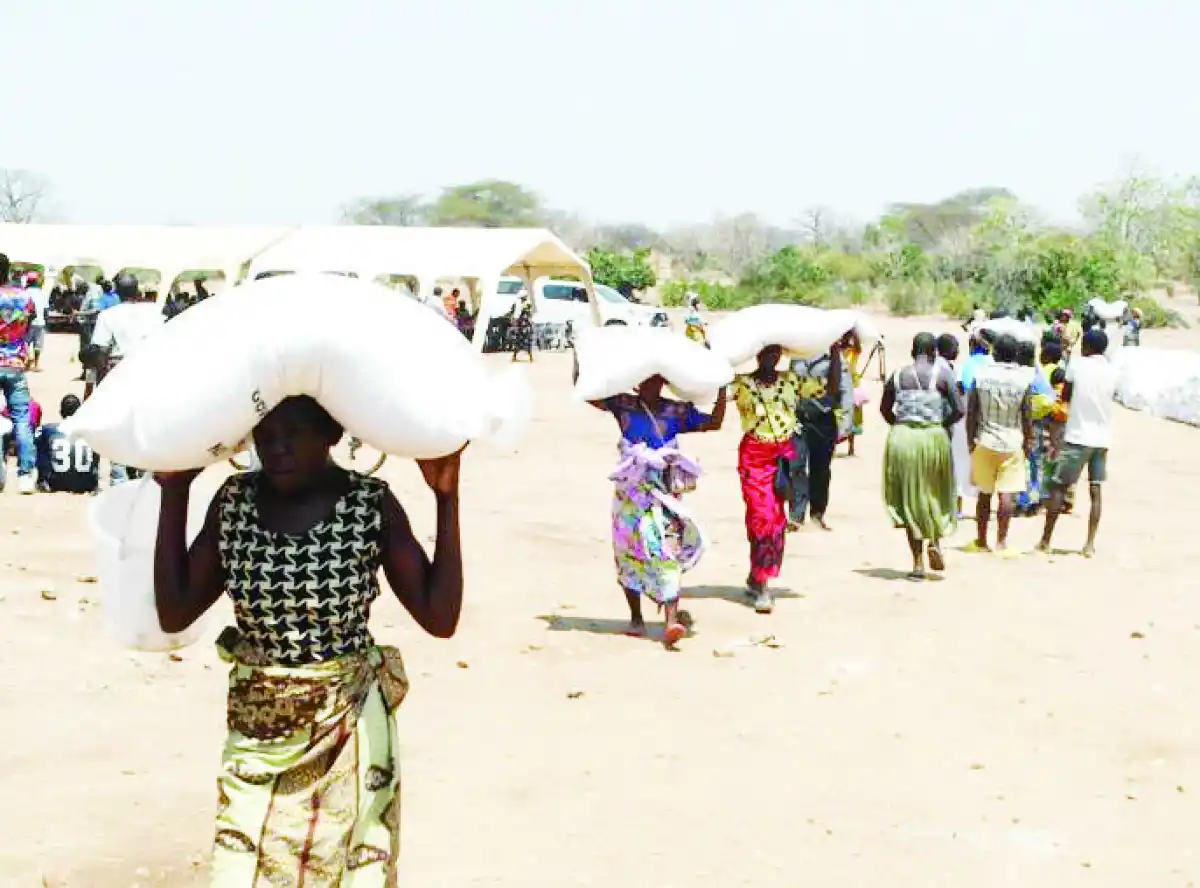
By Benadetta Chiwanda Mia:
The number of people requiring humanitarian food assistance in Malawi is projected to decrease significantly by May 2025, to between one million and 1.5 million from the current estimate of 3.5 million.
This is according to the November 2024 Food Assistance Outlook Brief by Famine Early Warning Systems Network (Fews Net).
The brief outlines Fews Net’s projections for populations needing urgent food aid and the highest anticipated Integrated Food Security Phase Classification (IPC) Phase in countries monitored by the network, looking seven months ahead.
Globally, Fews Net projects that 130 to 140 million people— representing 12 percent of the population across 30 monitored countries—will still require humanitarian food assistance by May 2025.
“In May 2025, Fews Net expects the highest numbers of people needing urgent humanitarian food assistance to be in Sudan, Yemen, Ethiopia, the Democratic Republic of Congo and Nigeria,” the brief states.
The overall demand for food assistance across Fews Net-monitored countries in May 2025 is expected to remain similar to that of May 2024, which surpasses the five-year average.
Compared to May 2024, the number of people in need is expected to rise in countries like Sudan, South Sudan, Somalia, Kenya, Haiti, Niger, Lebanon and Chad. However, a reduction in those needing food assistance is projected for Malawi, Ethiopia, Burkina Faso, and Zimbabwe.
In Malawi, areas affected by drought in the Central and Southern regions are expected to improve to a Stressed classification (IPC phase 2) by May, as the main harvest season begins, providing more income from agricultural labour and crop sales.
The favorable rainfall forecast for the 2024- 25 rainy season is anticipated to aid the country’s recovery after consecutive years of below-average crop production.
Currently, Malawi is contending with a high cost of living, with year-on-year inflation at 34.3 percent as of September 2024. Food insecurity has driven food inflation to 40.3 percent.
E c o n o m i c s Association of Malawi President Bertha Chikadza had earlier attributed this trend to adverse weather conditions that have hampered food production, particularly during the 2023-24 farming season.
“However, if food availability improves in areas with inadequate supply nationwide, food inflation could significantly decrease, helping to reduce overall inflation,” Chikadza said.








0 Comments